Deel vs Oyster: Key Differences, Features & Pricing 2026
Both Deel and OysterHR promise to simplify international hiring, streamline compliance, and deliver an optimal experience for distributed teams.
But while they share a common goal, their features, pricing structures, and overall approaches differ.
So, how to know which one is better for you?
Read on to get a detailed look at Deel vs. OysterHR to help you make an informed decision about which platform best aligns with your global expansion strategy.
We’ll also introduce an alternative that brings together the best features of both platforms.
Deel vs. Oyster: Quick overview and the areas of difference
Before we cover Deel and OysterHR in more detail, let’s see how both options stack against each other.
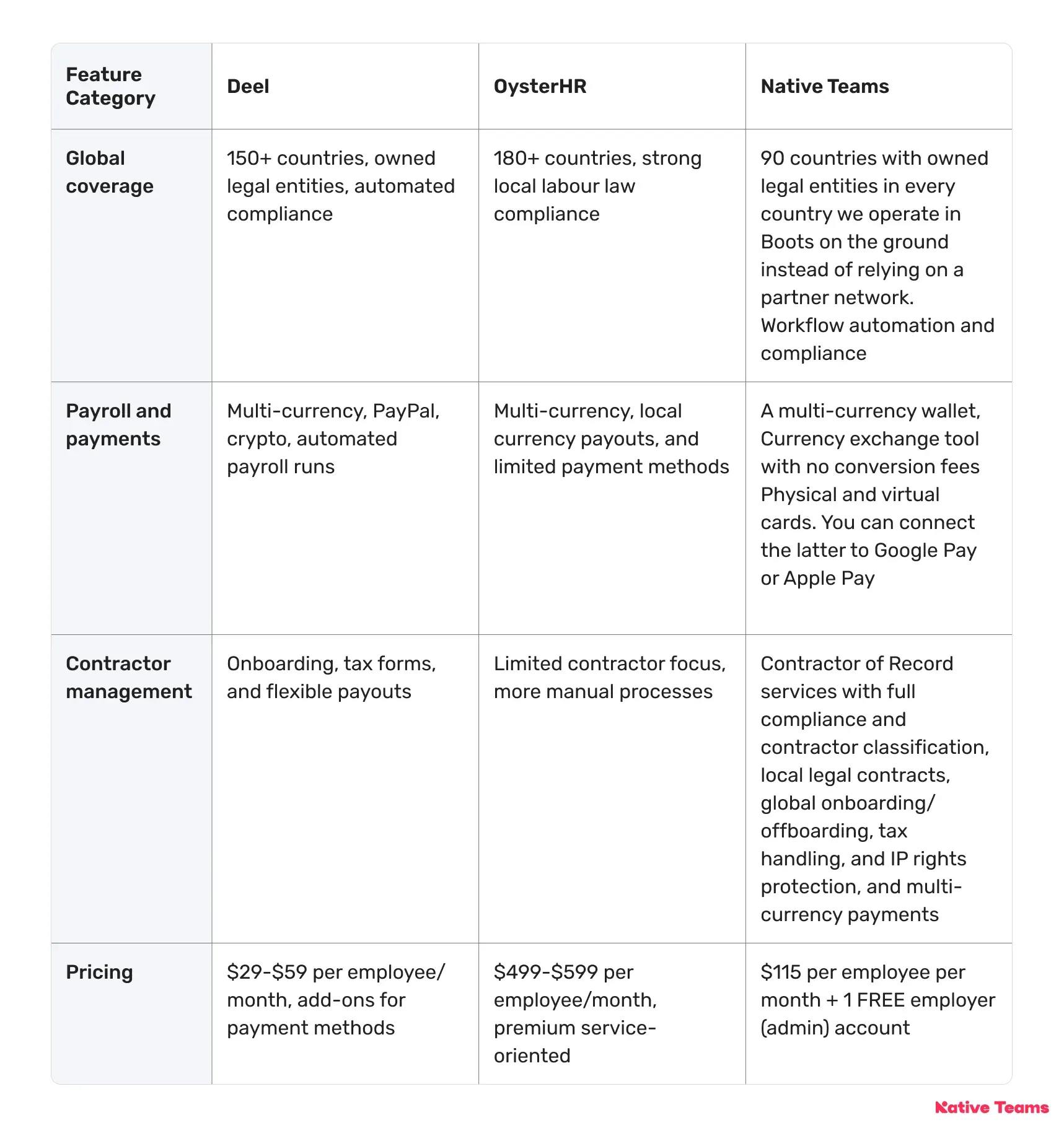
What is Deel: Overview and benefits
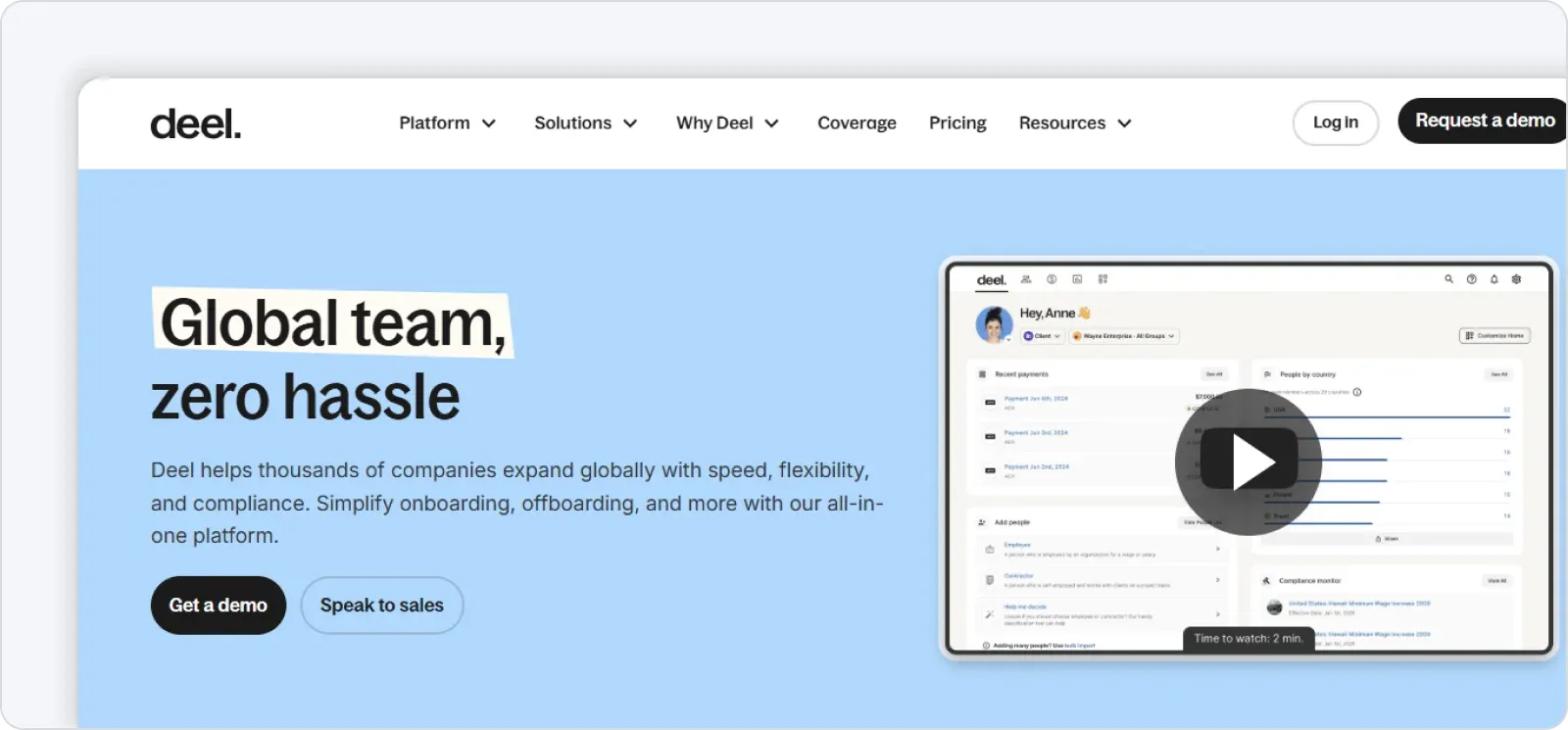
Deel is a global payroll and HR platform that allows companies to hire, pay, and manage employees and contractors in multiple countries while remaining compliant with local labor laws.
As an Employer of Record (EOR) in over 150 countries, Deel supports organizations with:
- Hiring and onboarding
- Payroll processing
- Tax and regulatory compliance
- Benefits administration
- Immigration support
- Contract management
The platform incorporates automation and AI-powered tools, operating on a global payroll infrastructure to facilitate international workforce management.
Best for:
Companies seeking extensive payroll and HR automation with flexible global hiring, including contractors and full employees.
What is OysterHR: Overview and benefits
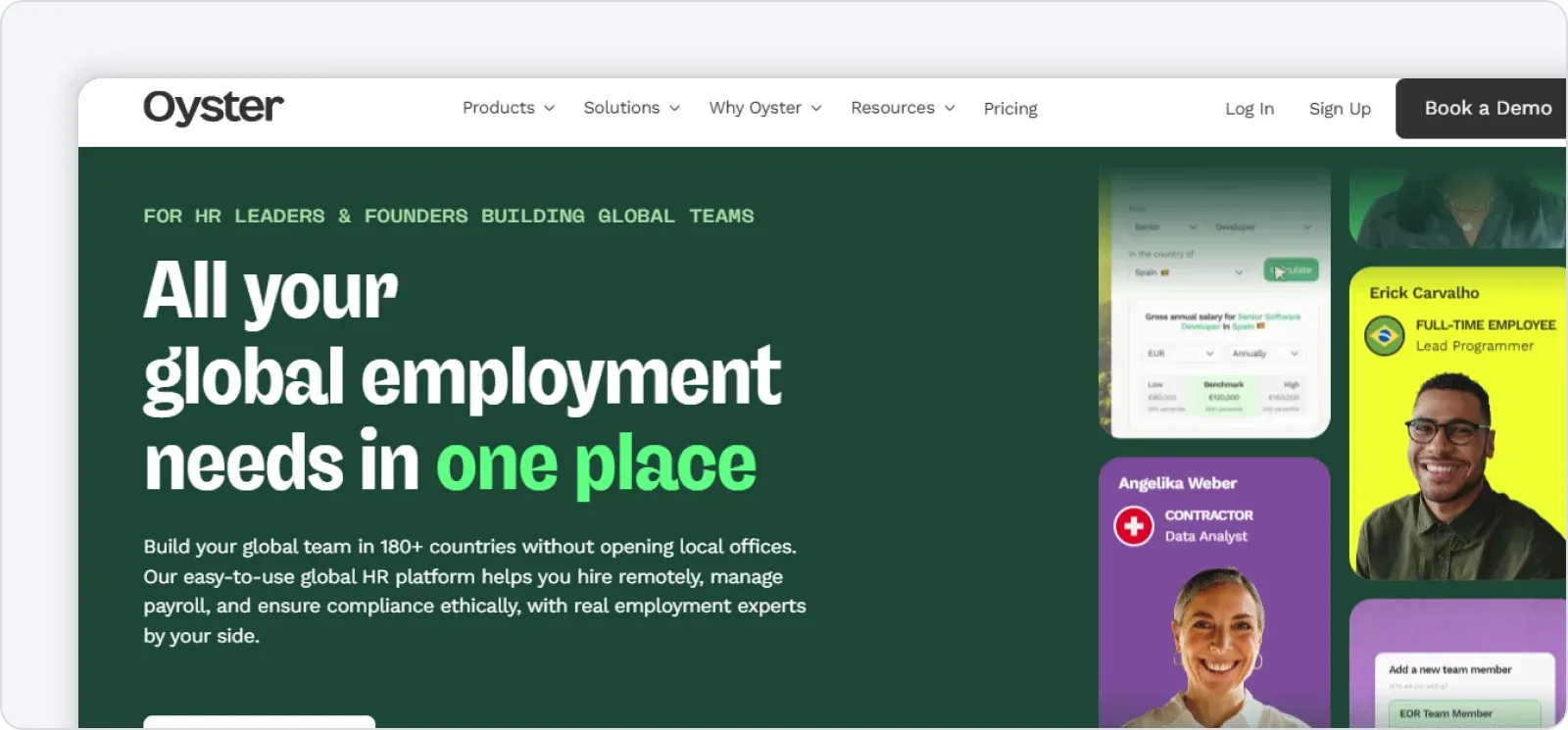 OysterHR is an all-in-one global hiring and HR platform that helps companies hire, onboard, pay, and manage international employees and contractors compliantly, without the need to establish local legal entities.
OysterHR is an all-in-one global hiring and HR platform that helps companies hire, onboard, pay, and manage international employees and contractors compliantly, without the need to establish local legal entities.
Key aspects of OysterHR include:
- Employer of Record (EOR) services that handle legal employment, payroll, tax filings, and compliance in multiple countries.
- Global contractor management with compliance tools, seamless payments, and easy contractor-to-employee conversion.
- Localized benefits administration tailored to each country, including health insurance and statutory benefits.
- Employee development through Oyster Academy, offering upskilling and career development resources, as well as remote-first onboarding workflows focused on cultural integration.
- A cloud-based platform with automated contract generation, compliance updates, and self-service tools, supported by in-country HR specialists.
Best for:
Companies focused on building a remote-first culture, emphasizing employee development, ethical employment standards, and market entry with a compliance framework across 180 countries.
Read on to see the differences between Deel and OysterHR in the aspects where they differ the most:
- EOR capabilities
- Payroll and payment options
- Integrations
- Pricing, as well as the pros and cons of both options.
Deel vs. Oyster: What are the differences in EOR capabilities?
The EOR capabilities of these two platforms show perhaps the biggest difference between them, and that is contractor management.
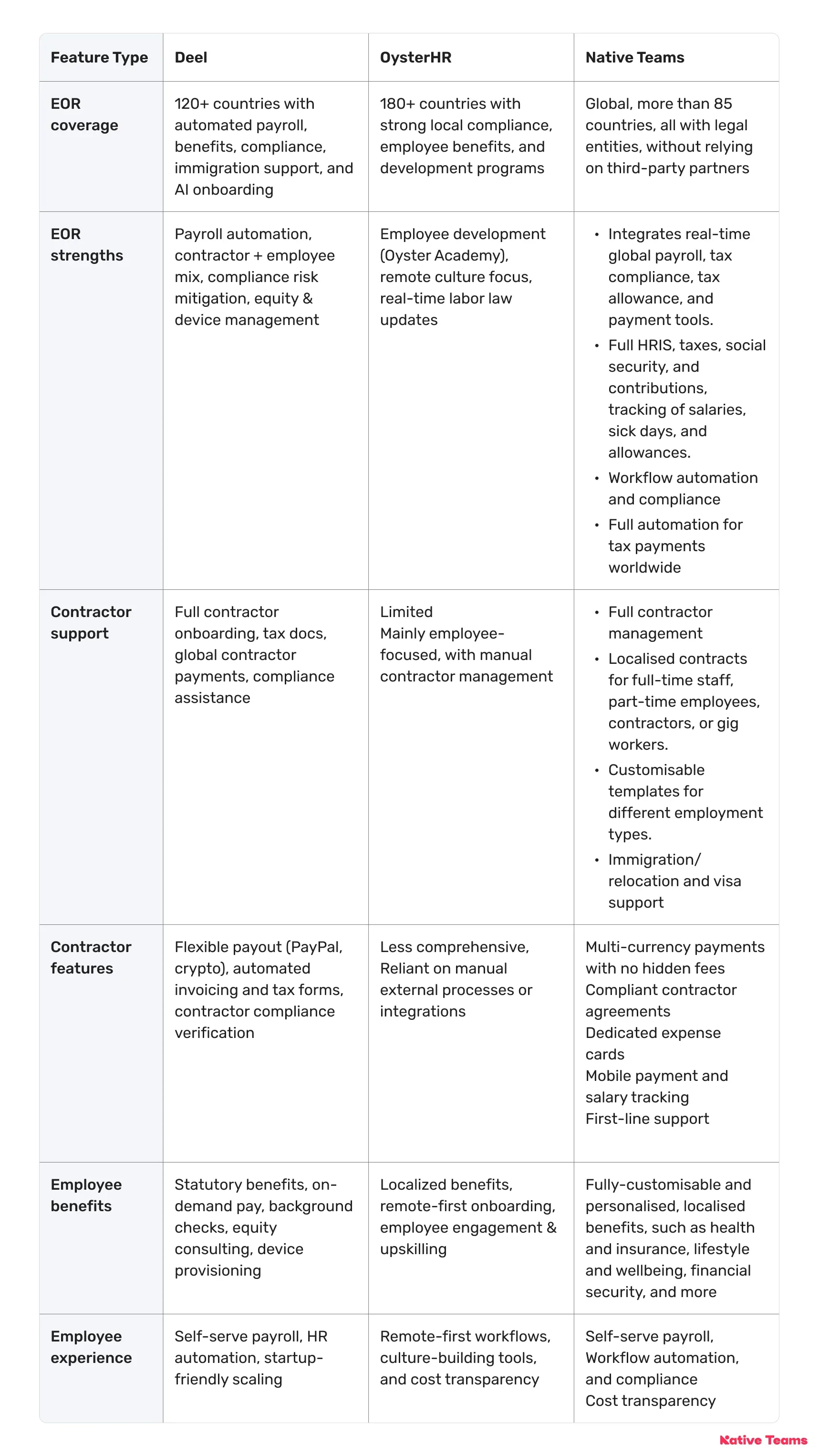
Deel: What EOR features does it offer?
Deel supports hiring and payroll in over 150 countries, using owned legal entities and in-house payroll engines for strong local compliance automation.
EOR features include:
- Automated payroll processing, tax withholding, statutory benefits administration, and contract generation.
- AI-powered onboarding, immigration and visa support, equity consulting, and device management.
- Integration with HRIS systems and customizable workflows.
Contractor management
When it comes to contracting, Deel manages independent contractors globally with tools for onboarding, tax document collection, and payments.
It offers flexible payout methods, including PayPal, bank transfers, and crypto options, as well as automated invoicing and contractor compliance verification to reduce classification risk.
Contractors remain self-employed while Deel facilitates compliance and payment processes without employment obligations.
Deel supports mixed workforce management, combining contractors and full-time employees on a single platform.
Employee features
This is another area where these two tools differ. Deel is less focused on employee experience and engagement.
Deel automates global tax compliance and filings, covering employment-related obligations, including employment taxes, social security contributions, and statutory employee benefits.
OysterHR: What EOR features does it offer?
OysterHR operates in approximately 180 countries, prioritizing strict compliance with local labor laws and providing employment liability insurance across all its operating regions.
It focuses on compliance risk management and updating employment terms in real time.
The platform also manages payroll, benefits, statutory entitlements, and labor law updates in real time.
Contractor management
OysterHR is primarily designed with full-time employees in mind, and its support for contractors is relatively limited.
The platform places less emphasis on contractor onboarding and management workflows, which means that handling payments and ensuring compliance for contractors may require more manual effort or the use of external tools.
Its core focus remains on managing employees and enhancing their engagement, rather than covering the full contractor lifecycle.
Employee features
OysterHR prioritizes employee experience and engagement, offering features such as Oyster Academy to support continuous learning and development.
The platform is built around a remote-first approach, with streamlined onboarding workflows, cost calculators for benefits and taxes, and tools that help foster cultural integration within distributed teams.
It also provides access to localized benefits packages tailored to each country, supporting ethical employment practices and global workforce development.
While payroll automation and real-time compliance monitoring are key strengths, some HR processes may still require manual input.
Deel vs. OysterHR: What are the differences in payroll and payments?
Deel and OysterHR both provide automated international payroll solutions, but their payroll and payment features differ in flexibility, methods, and customisation.
Deel: What are the payroll and payment options?
Deel supports payroll globally, focusing on compliance automation, multilingual contract generation, and adherence to tax regulations with multiple payout methods, including bank transfers and PayPal.
- Multi-currency support: Deel supports payments in over 100 currencies.
- Payment methods: Offers a wide variety of payout options, including bank transfers, PayPal, Revolut, Coinbase, Payoneer, etc.
- Payroll automation: Payroll runs are automated with a payroll cutoff date.
- On-demand pay: Deel lets employees access their earned wages before payday.
- Off-cycle payments: Supports off-cycle payments for urgent or bonus payroll needs without needing a full payroll run.
- Payroll analytics: Provides detailed insights and tracking of payroll changes.
OysterHR: What are the payroll and payment options?
OysterHR provides global payroll services, with a strong focus on local labor law compliance, benefits management tailored to each country, and real-time updates on labor laws.
- Multi-currency payroll: OysterHR supports payroll across multiple countries with payments in local currencies to meet compliance with local banking and tax regulations.
- Payment options: Focuses primarily on traditional bank transfers and local currency payroll disbursement, offering fewer alternative payout methods compared to Deel.
- Payroll automation: Automated payroll runs with integrated handling of taxes, deductions, and compliance for over 180 countries, but with less flexibility around payroll customization or off-cycle payments.
Deel vs. OysterHR: What are the integration differences?
Deel supports over 120 native integrations, including accounting, HRIS, applicant tracking, communication, and project management tools.
Popular integrations include:
- Xero, QuickBooks, Sage (accounting)
- BambooHR, SAP SuccessFactors, Workday (HRIS)
- Lever, Greenhouse (ATS),
- PayPal, Wise, and Revolut (Accounting), etc.
Deel provides API access with a developer-friendly sandbox environment available without support requests.
On the other hand, OysterHR integrates with HR tools such as BambooHR and Greenhouse but requires more manual intervention, with fewer integrations overall.
It has around 15 native connections and focuses more on compliance and employee experience over a broad integration system.
The platform does have an API, but with more limited customisation options.
Deel vs. OysterHR: How do they differ regarding price?
Before making your choice, here’s how these two options compare in terms of price.
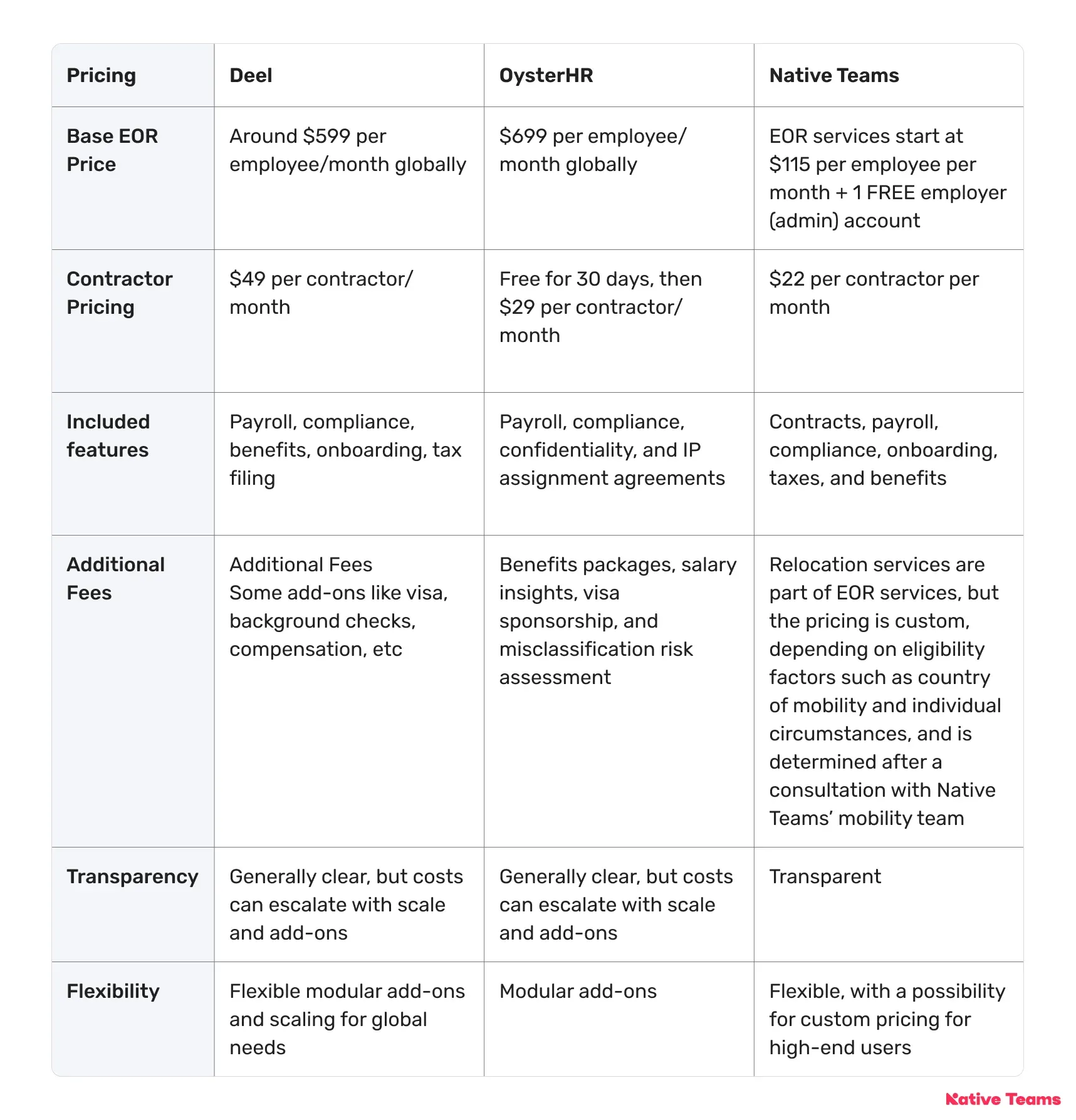
Deel’s contractor pricing starts at $49 per contractor per month, whereas OysterHR offers a 30-day free trial and then charges $29 per contractor per month.
When it comes to EOR services, Deel charges around $599 per employee/month globally, while OysterHR charges $699 per employee/month globally.
Deel vs. OysterHR: Weighing the pros and cons to help you choose
Both Deel and OysterHR have their strengths and areas to improve. Here’s how they compare on both fronts.
What are Deel’s pros & cons you should know about?
🟢 Strong global compliance tools for international hiring minimise legal risk.
🟢 Supports multi-currency payments.
🟢 Automation in payroll and HR workflows.
🔴 Higher cost for small teams or startups.
🔴 Certain capabilities are only available as add-ons.
🔴 Doesn’t have a mobile app.
What are OysterHR’s pros & cons you should know about?
🟢 Automated compliance management.
🟢 Strong focus on employee experience and engagement.
🟢 Provides employment liability insurance in all countries of operation.
🔴 Doesn’t have legal entities in every country it operates.
🔴 Doesn’t have strong contractor management capabilities.
🔴 Higher cost.
Deel vs. OysterHR: Which one should you choose?
Deel offers features and solutions for managing both full-time employees and independent contractors globally within a single platform, making it a good choice for companies with diverse hiring needs.
On the other hand, OysterHR can be a good fit for companies heavily prioritizing strict local labor law compliance.
Thus, Deel could be your choice if you look for flexibility, broad automation, and the ability to handle contractors alongside employees cost-effectively.
OysterHR is a good candidate if strict compliance, employee development, and fostering a remote-first culture with premium support are your top priorities.
Although both platforms offer a wide range of features in their standard plans, several advanced capabilities are locked behind additional add-ons, which can quickly add up to the total cost.
Fortunately, there’s an alternative that strikes a balance between Deel and OysterHR, enabling organizations to manage both full-time employees and contractors globally without unnecessary complexity or unexpected expenses.
Native Teams: A robust alternative to Deel and OysterHR
Native Teams brings together EOR and PEO capabilities in a single platform, specializing in work payments, employment solutions, tax management, and global mobility across more than 85 countries.
By operating through our own legal entities in each region, we ensure full compliance with local legal, tax, and regulatory requirements.
Our integrated platform allows you to manage entity ownership, payroll, compliance, global payments, and the overall employee experience with ease, all from one place.
Here’s what we bring to the table:
✨ Expand your team in 85+ countries with our EOR services, or choose to set up your own entities for greater ownership and long-term scalability, all managed through a single platform.
✨ Ensure contractors are fully managed according to the regulations of their country with our Contractor of Record services that take care of compliance, worker classification, contracts, and all local legal requirements on your behalf.
✨ Let your team focus on what matters most while we handle employment taxes, wage reporting, and legal compliance through our PEO services, backed by local expertise.
✨ Manage payroll across the globe with full transparency. From gross-to-net calculations to taxes, benefits, and withholdings, we ensure accurate, timely payments in local currency.
✨ Use our Payroll Calculator to get a clear view of salaries, contributions, and employer expenses, helping you understand the full cost of each hire with complete transparency.
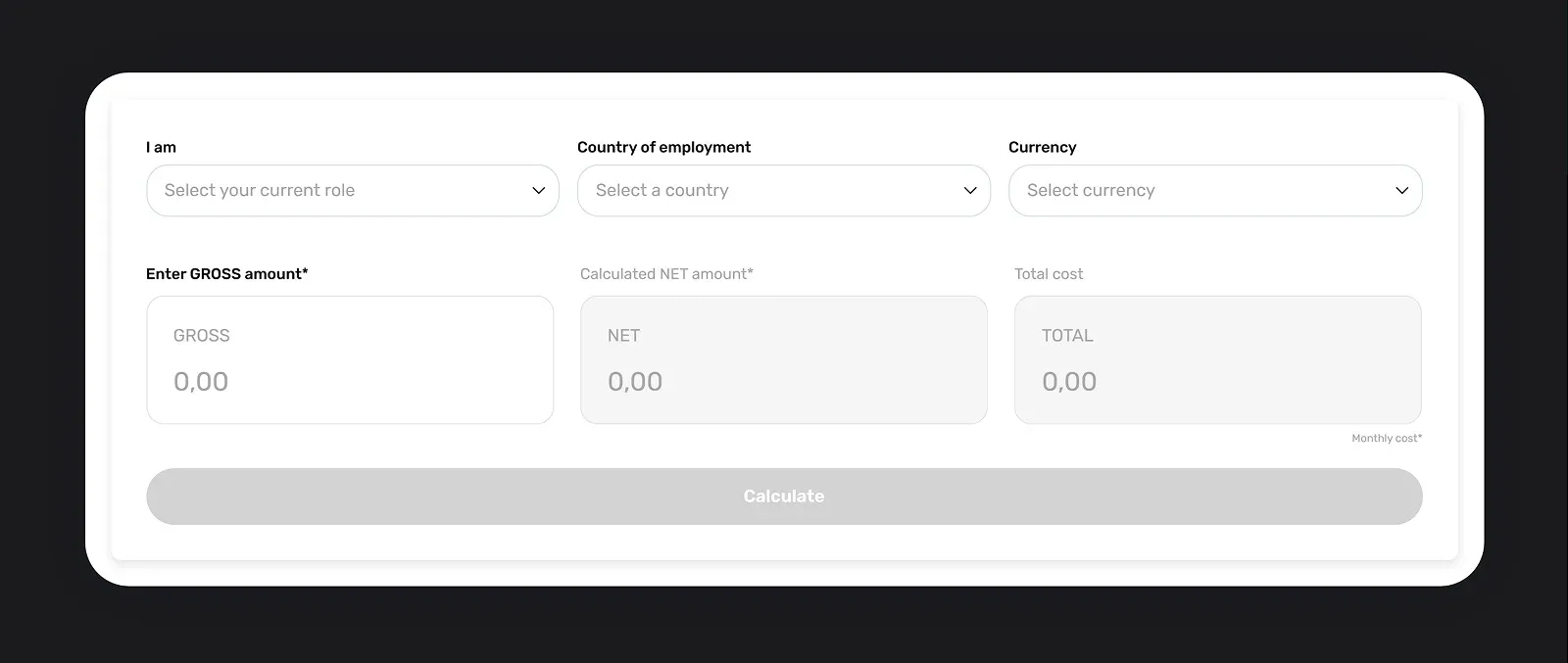
✨Enable fast currency conversions and cross-border payments with low fees, helping you manage cash flow more efficiently.
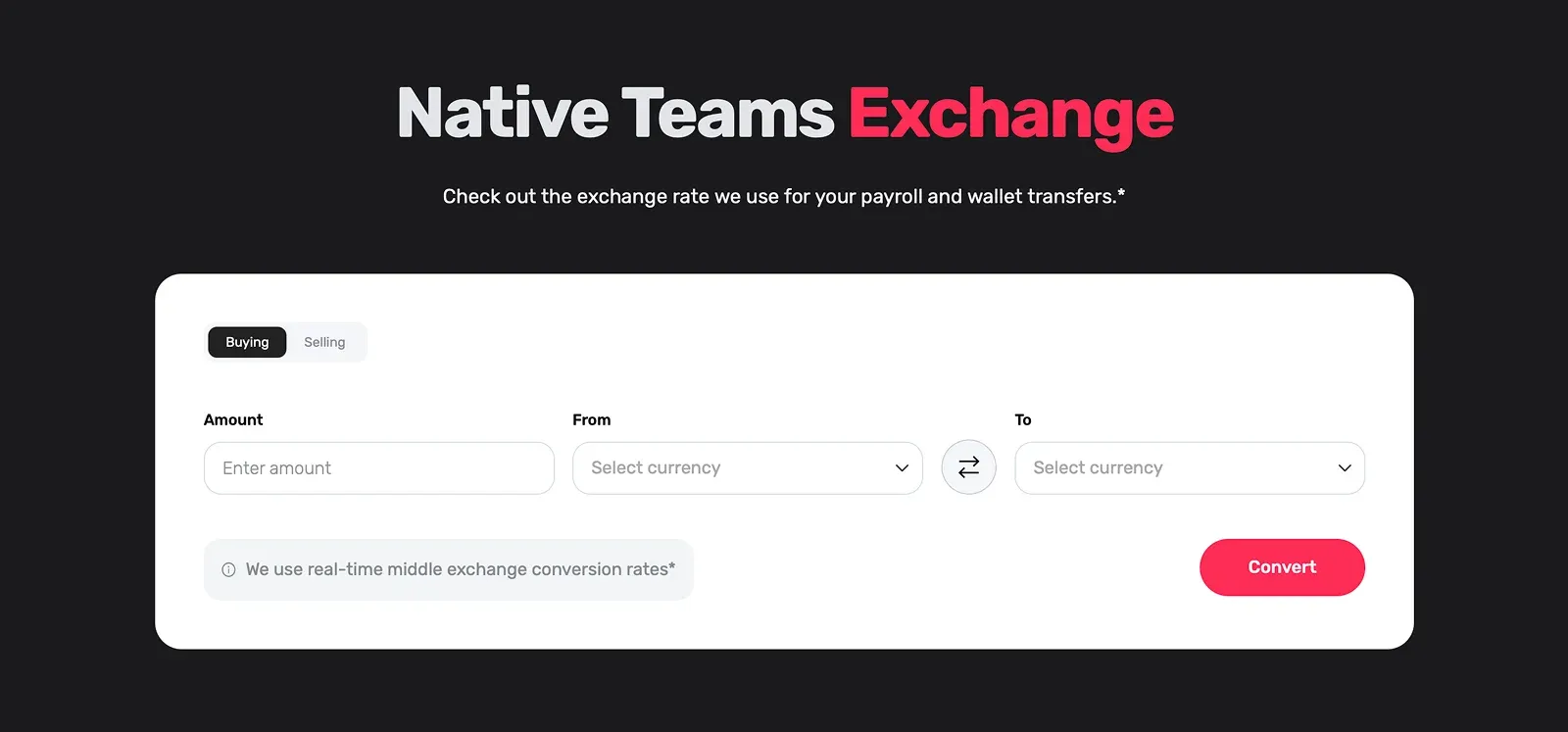
✨ Send, receive, and convert funds instantly across currencies with our integrated multi-currency wallet, cutting fees while giving you full financial control.
✨ Automatically create localized contracts and onboard new hires within 5–7 business days, including tax registration and compliance with local authorities.
✨ Get a smooth relocation experience with our support for more than 30 countries, covering the entire process from preparing visa documents to coordinating with local authorities. Our legal experts handle eligibility checks and submit applications on your behalf.
And the list goes on.
Curious to see how you can combine Deel’s automation and contractor management with OysterHR’s compliance management?
Book a free demo with Native Teams and discover more efficient ways to manage your team worldwide, regardless of their employment status.
